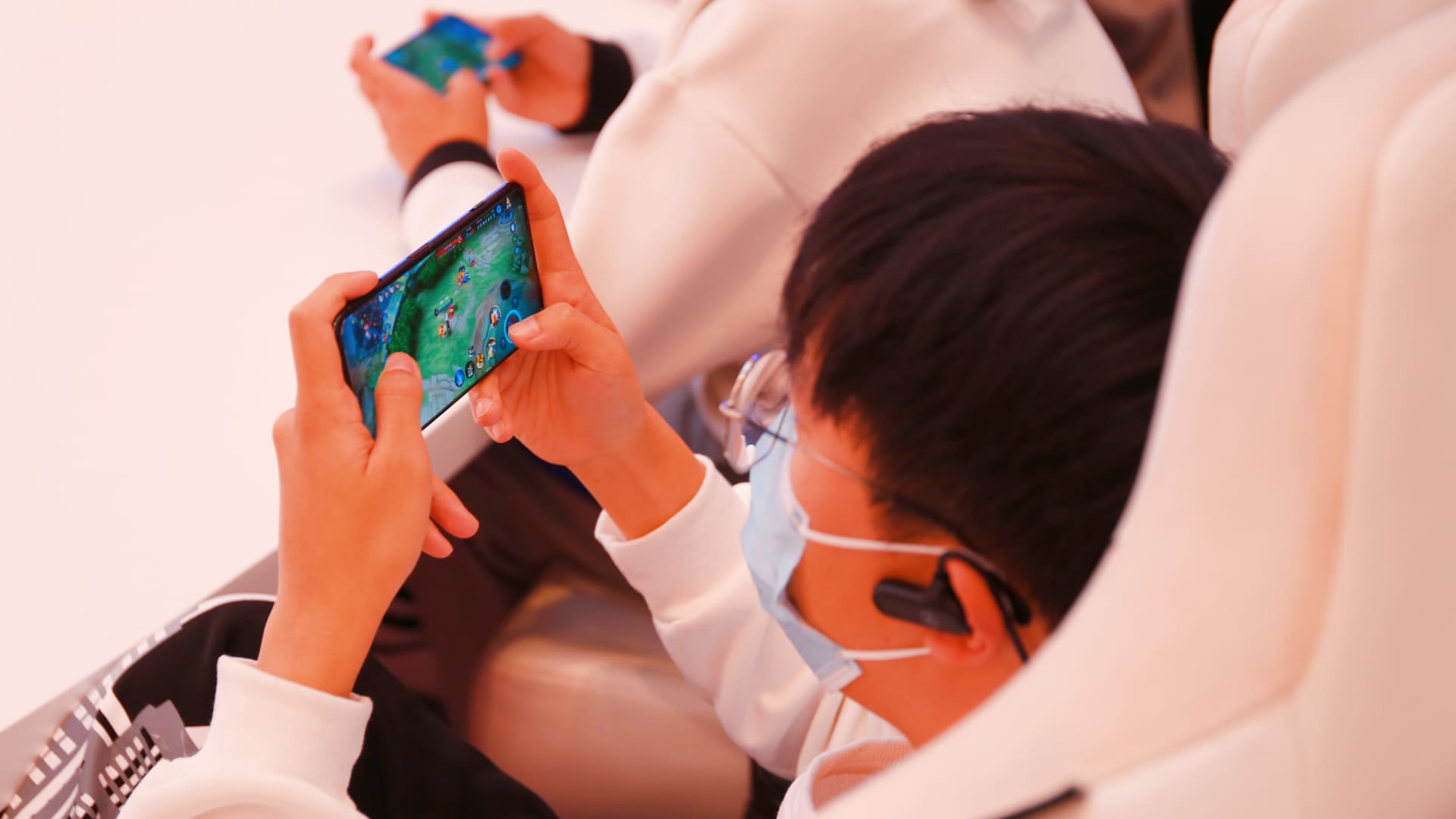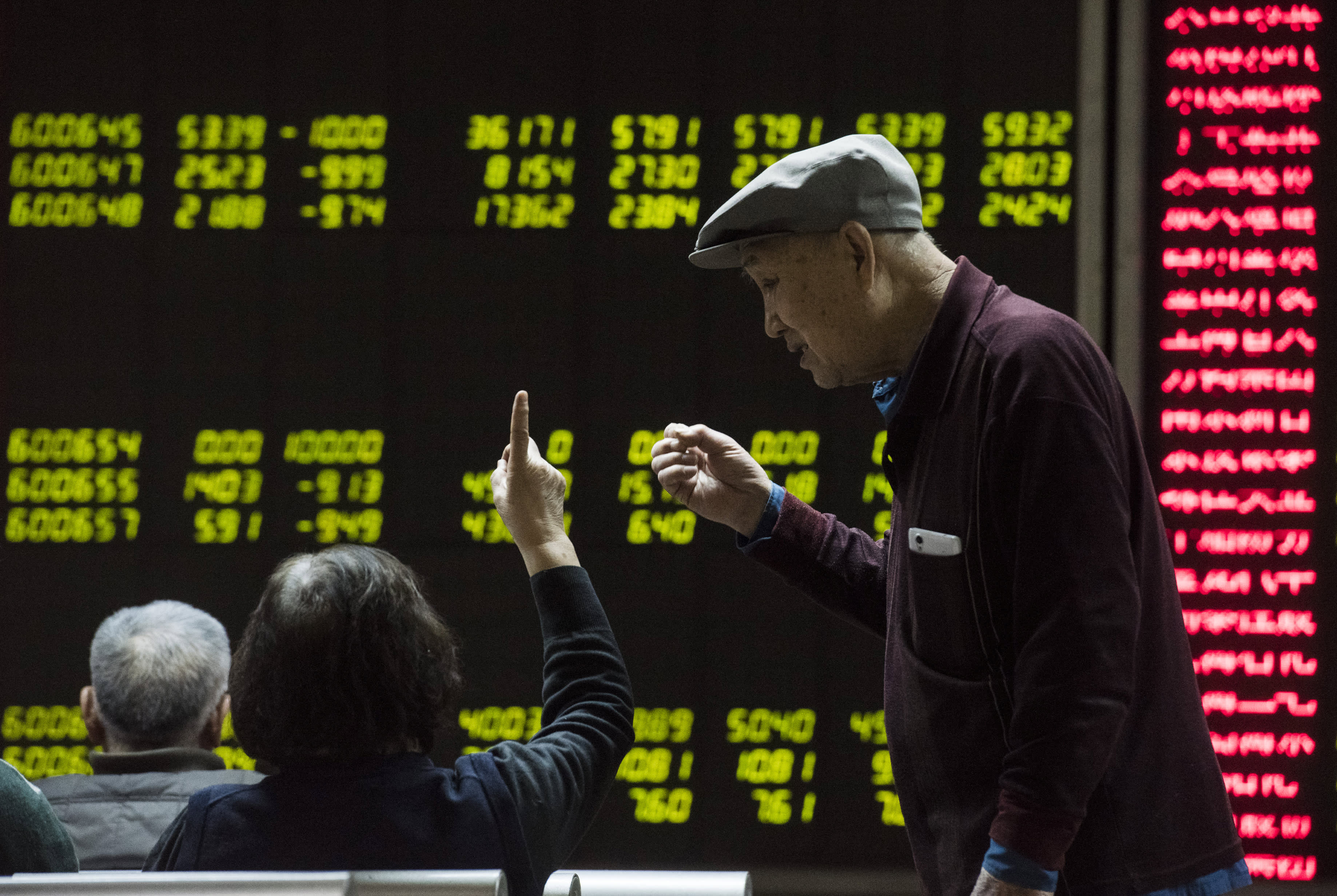
Chinese regulators have increased scrutiny on the domestic game sector over the past year and a half. But new batches of game approvals and positive steps on improving gaming addiction among kids under 18 years old, could be positive signs that the crackdown is easing.
Xing Yun | Costfoto | Barcroft Media | Getty Images
Beijing is showing signs that its intense crackdown on the domestic video games sector could be easing which may be bullish for Chinese tech giants including Tencent and NetEase.
On Tuesday, research firm CNG alongside the China Game Industry Group Committee, which is affiliated with the gaming publishing regulator, published a report in which they praised the progress on reducing gaming addiction among people under the age of 18.
related investing news
Regulators have been concerned for some time about gaming addiction among minors. Last year, China’s National Press and Publication Administration brought in rules that restricted kids under 18 years old from playing online games for more than 3 hours per week.
The CNG report holds weight because it has been published in conjunction with a key gaming industry body with links to the regulator. The report said more than 70% of minors play games for less than 3 hours a week, and the problem of minors’ game addiction has “achieved a step toward resolution,” according to a CNBC translation.
The positive report could signal a more bullish outlook toward the Chinese gaming sector.
“China’s strict regulatory approach over the past year has been a result of a lack of enforcement and compliance across key areas,” Daniel Ahmad, senior analyst at Niko Partners, told CNBC. “With game companies now fully compliant, we are seeing a more positive outlook start to develop.”
The CNG report also singles out major Chinese gaming companies including Tencent and NetEase for their positive moves enforcing the protection of minors.
For example, both Tencent and NetEase use facial recognition to see whether the person playing the game is an adult.
Another positive sign came last week when the regulators approved a batch of 70 new games for release. In China, video games need approval to be published and monetized. Among the approvals was a game titled Metal Slug: Awakening from Tencent, marking the company’s first commercial game license in a year and a half, according to Reuters.
Last year, China froze game approvals in the summer and only began green lighting games in April this year. But titles from Tencent, China’s largest gaming firm, have been absent from the lists until now.
Tencent management last week told analysts on its third-quarter earnings call that the company expects game licenses to be approved relatively quickly in the future, adding to further signs of regulatory scrutiny on the sector easing.
Martin Lau, president of Tencent, said the company is seeing “positive signals across the path of macro and regulatory normalization.”


